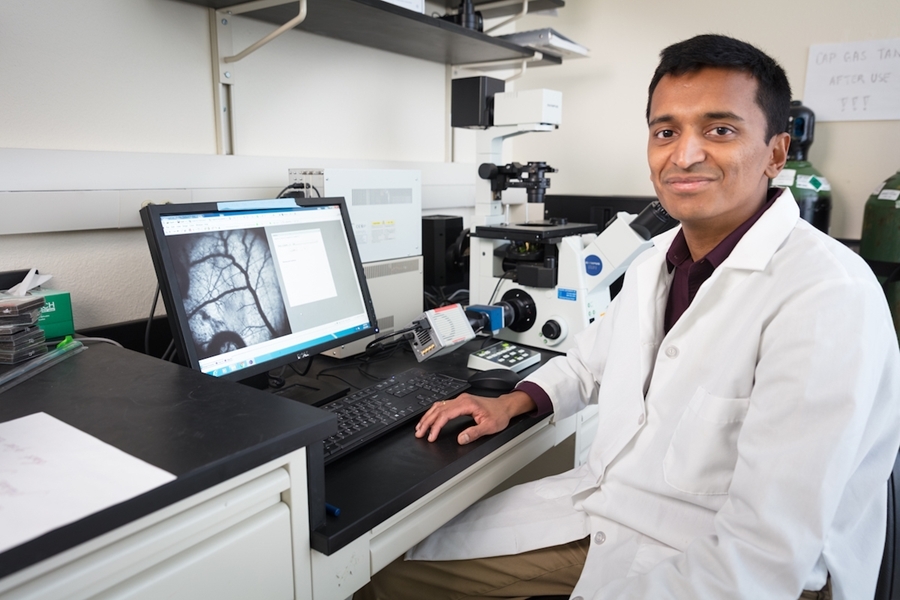Two biomedical engineering researchers have been awarded $145,000 from the Department of Defense to study whether metabolic changes in tissue could give clues to where tumors might form.
Narasimhan Rajaram, assistant professor of biomedical engineering, will lead the study. Kyle Quinn, assistant professor of biomedical engineering, will serve as co-investigator.
The research focuses on lung cancer, which is typically not identified until late stages. Rajaram will investigate the "field effect," a phenomenon that suggests studying seemingly-normal tissue around a tumor might reveal underlying genetic changes that indicate whether another tumor could form.
"We're trying to determine if there are changes in the adjacent normal tissue," Rajaram said. "Are they pathologically normal but metabolically abnormal?"
Researchers will be using multiphoton microscopy, an advanced imaging technique used on living tissue, to examine three types of tissue: Normal tissue, tumor-adjacent tissue that appears normal, and tissue from a tumor. The goal is to understand how tumor-adjacent normal tissue might be different from truly normal tissue.
"We're looking at whether supposedly normal tissue in patients at risk of developing lung cancer exhibits early metabolic hallmarks of cancer that we can use for early detection," Rajaram said.
If a pattern can be discerned, it could help doctors identify cancer earlier, which gives patients a broader range of treatment options.
"When a tumor is extremely small, you have a lot more options for treatment," Rajaram said. "In stage one, you have a few options - like surgery and chemotherapy. The farther along it gets, the harder your treatment options become."
For example, Rajaram said, if a tumor is too large, radiation or chemotherapy may be required to shrink a tumor before it can be removed surgically.
The research also has links to head and neck cancer, a specialty of Rajaram's research program. The field effect was first identified in relation to tumors in the oral cavity. If researchers can find a connection between oral tissue and lung tissue, it could improve outcomes for patients.
"Normally, you'd be threading a probe into the lung and risking damage to identify cancer, but if you were able to access the upper airways or nasal passages, maybe there are changes happening there that indicate further changes are afoot lower down," he said.
Raj Rao, head of the Department of Biomedical Engineering, said the research takes advantage of the department's unique expertise.
"Given the heterogeneity that exists in a tumor, Dr. Rajaram's approach in teasing apart the metabolic signatures within different regions is extremely significant," Rao said. "The collaboration with Dr. Quinn exemplifies the range of applications that is being targeted using imaging modalities that the department currently has in place."
Topics
Contacts
Nick DeMoss, director of communications
College of Engineering
479-575-5697, ndemoss@uark.edu
